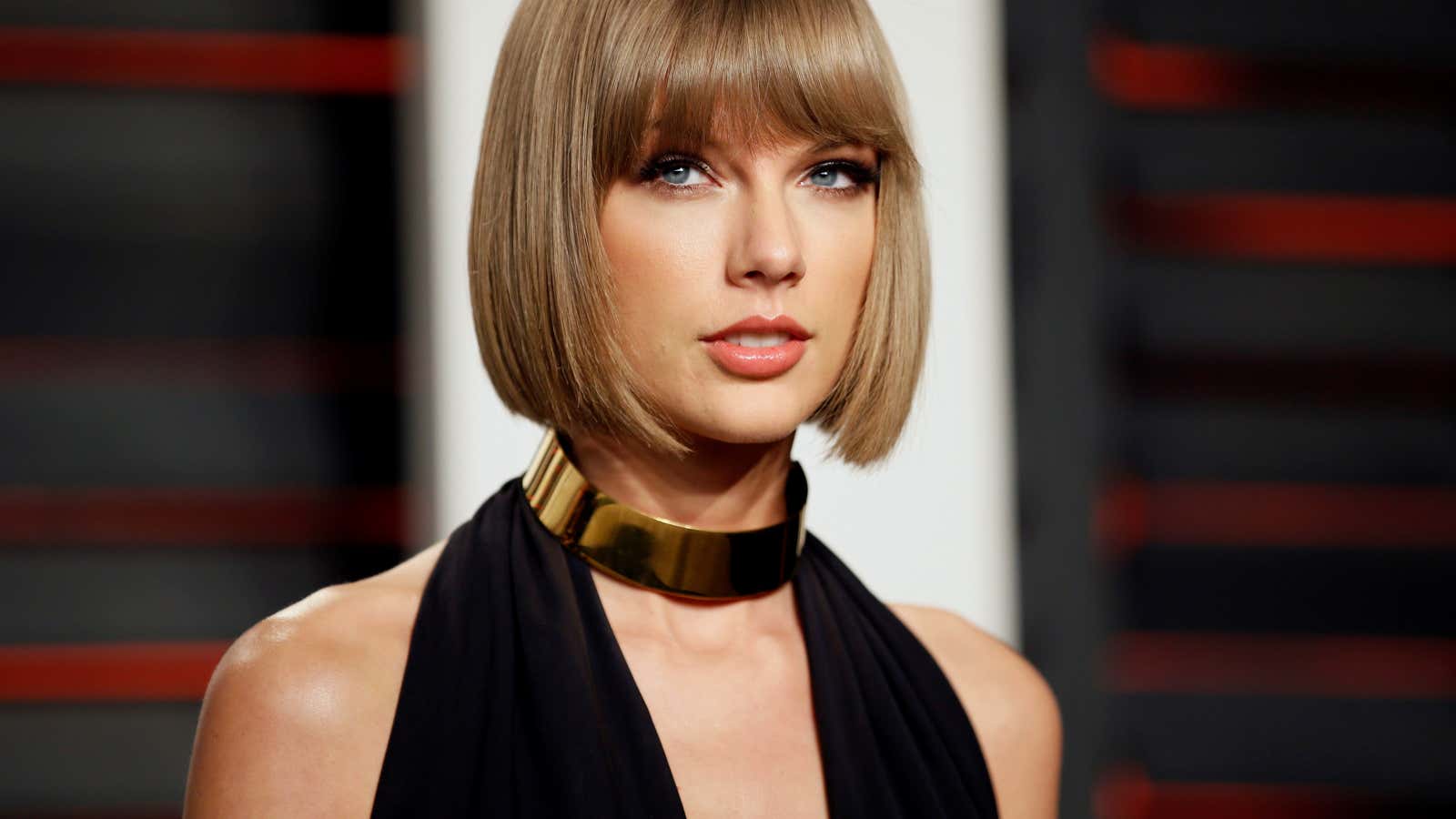Remember in 2014 when Taylor Swift unleashed a flood of rage on Spotify? “Music is art, and art is important and rare,” the singer declared, after removing all her songs from the streaming service. “Valuable things should be paid for. It’s my opinion that music should not be free.”
She, along with several other artists, was protesting Spotify’s “freemium” model, which lets some users listen to music without paying and makes less money for musicians than subscription-only services like Apple Music or Tidal. While Spotify does operate a paid premium tier for $10 a month, it also staunchly defends its free, ad-supported tier—which has at least 50 million users.
Swift would be pleased to hear that Spotify today announced a new deal with Universal Music Group, the biggest record label in the world, that essentially snubs those millions of people on the free tier.
Under the multi-year agreement, some artists will be able to place their albums exclusively on Spotify’s premium tier for two weeks, meaning paying subscribers will get to listen to new albums earlier than the freeloaders. (How many there are of each is a bit fuzzy: Spotify recently confirmed it has 50 million people on its paid tier, but hasn’t announced an update to its number of free users in the last year. Financial filings from 2016 showed that 70% of Spotify users were on the free tier.)
“This partnership is built on a mutual love of music,” Spotify CEO Daniel Ek said in a statement. Or, really: a mutual interest in money. By allowing exclusives, Spotify is nudging free users to sign up for its much more profitable premium service.
The question now is how well that will actually work. When Kanye West dropped an exclusive album on Tidal last year, Tidal subscriptions did indeed skyrocket—but so did piracy. West’s The Life of Pablo was illegally downloaded via BitTorrent and other sites by some 500,000 people within a single day of its release. It stands to reason Spotify’s new exclusives deals will trigger at least some degree of that same problem.
Spotify’s even shamed the idea of exclusive music itself in the past. Yet the service’s sudden turnaround today indicates that its free-music strategy was not sitting well with the music industry at large. And Spotify especially needs to stay in record labels’ good graces right now if it’s going to make progress toward its long-promised IPO.
